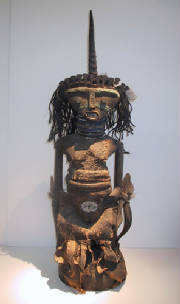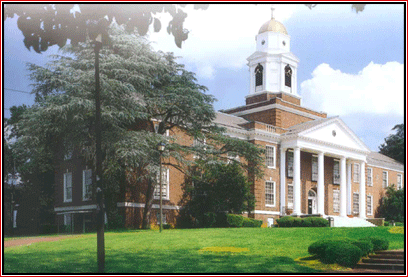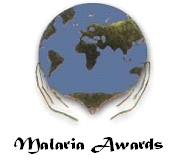  |
 |
 |
 |
|

|
 |
|
Academia in Atlanta, Georgia
|
 |
|
 |
|
Atlanta NightLife | Atlanta Hot Spots - NightLife Entertainment: | Art Galleries in Atlanta, Georgia | Theatre, Cabarets, Dinner Theatre, Comedy Theatre, Piano Bar and Clubs. | Dance in Atlanta, Georgia | Atlanta Sports Page. | Science, Technologies, Public Policy and Ethics. | The City of Ithaca, The Cultural Magnet Destination City. | Academia in Atlanta, Georgia | Connections to Atlanta, Georgia ( Links Page ) | Link Exchange Program | Marietta Night Life ( NightLife ), RMC | Forest Park Night Life ( NightLife ), RMC | Smyrna Night Life ( NightLife ), RMC | Jonesboro Night Life ( NightLife ), RMC | Roswell Night Life ( NightLife ), RMC | Fayetteville Night Life ( NightLife ), RMC | Peachtree Night Life ( NightLife ), RMC | Decatur Night Life ( NightLife ), RMC | Persian Gulf Veterans: | Atlanta NightLife: Blogs, Bloggers, and Journal Directory | Atlanta Night Life ( NightLife ): Additional Links: | Atlanta NightLife Fashions Directory: | Atlanta NightLife Festivals Directory: | Atlanta NightLife Students / Scholars Clubs Directory: | Atlanta NightLife Social Dance Classes Directory: | The American Missing Child - Children Night Life ( NightLife ), RMC Network: Atlanta NightLife | Traffic Stop Directory: | Atlanta, Georgia International InterCultural Communications Directory: | Atlanta NightLife Social Directory: | archive | delete
|
|
 |
|



Issues ! Issues ! Issues !
For those who grave new intellectual frontiers. You are then advised to goto [ WebSite ] for details about a movement to focus on . "Cultural Democracy ."
********************************************

|

International Students / Scholars :
|
|

| Cultural Zionism |

|
| WebSite |
|
Other
International and National Academic locations:
The Goals of this site are:
Support of Free Scientific Inqury, and Open Research:
Proper review of all data to assure accuracy of all information published on this site:
Ethical considerations are also solicited so long as they do not in any manner what so ever
seek to politicalize any field of research, or the innovator and scientist in the process of discovery.
More importantly, science and technology as both a field and profession must be totally responsiable
for the security aspects of every innovation made.
This is assisted, networked and further developed by the following processes.
Public Access: This feature
makes the science more understandable to a larger population segment. Moreover, to inspire others with considerable academic
experiences to formulate a democratic informative focus which assists greater comprehesion by the social, cultural, spiritual
and political leadership about major science and technological issues of today.
|

Clark Atlanta University
|
|
|
|
|
Information and design are the new magic of the Internet. Here is where International Students
/ Scholars can find the critical information needed to make their participation in America's academic culture more pleasure'able.
Article I
There are three distinct elements which I considered when looking
at the internet and how can I get the " best " message out in what I publish which best represents the actual intent of my
personality, interests, skills, and knowledge.
One. Fundemental to everything in which I posted / published was
based upon hard empirical evidence. Thus very hard core research was involved in every aspect of any bit, or in this
case " byte " of information, and the additional deliberate action to force introspective personal discoveries,
is the continued some-what selfish motives and passions behind each step taken.
Two. The single aspect of InterCultural Communications
as a very deliberative means to produce events was the essential empowering element which I found out is the primary
socicultural and sociopolitical power platform for the future. The power comes from the transition of time, and of discourse
of additional aspects of human development in which we, as a civilization are slowly becoming aware, which events which
are based upon InterCultural Communications becomes the very formative up-evolutionary behaviorial anthro-developmental traits
which triggers conflict preventioning to occur. And it is exactly here, "Conflict Preventionng where everything else
is derived. The evidence for this truthism is overwhelming.
Three. The actual recognition of the objectiveness
of the internet itself, in as much as everything it views from various serach engine
crawlers or spidders, bugs, has the interesting clean slate encryption - as each webpage is initial judged. Moreover, it is from here, and the further understanding of
the various technologies involved in both hardware and software development that wide -spreading of content was imperative;
this demanded higher and more deeply penitrative knowledge, and as a result I have well worn used at least 7 libraries within
the academic central community of Ithaca, New York. The central factor for this very timely and costly action is that
there are distinct connections to the bugs of the internet, and empirical
information-hard factual content information which triggers higher results.
The internet goes real buggy
over hard and qualified content information. Like a camel to desert oais water well. At first it can not get enough.
Then later its rider is likewise very satisfied as a result. Thus, a deeping and harder introspection of each information
byte produced the qualified results.
Thus you now have the initial three points, and what they eactly
entail, and why everyone should begin to think differently is not only based upon the growing dependency on the growth of
the internet for future prosperity, but that the single physical action we should take is to produce those events which promotes
InterCultural Communications. To do this, we need addtional International Students / Scholars - which according to my
research means an additional 4.8 million addtional International Students / Scholars.
Does the world have them to offer?
Yes!
The pedagogy of each institution of higher education will likewise
have to adjust their academic curriculum and grading proceedures to meet the resulting discourse resultant evaluations,
faculty evaluations - student- and teaching aspects adjustments, adjunctive financial support structures - and
the needed additional principle America academia will have to adopt to modify its pedagogy as a result.
Then, and only then, will be very clear what Thinking Differently
means both a vision, and the circumstance resultant as a result of making such a commitment.
Article II
We have here in the United States millions, as it now seems, of migrate labors who are primiarly
from South America - even though the Asian are now becoming more numerous. This is
opportunity.
What this means, from my own personal point of view is that these hard working peoples should
be out-reached to for these very specific factors:
- Access what are the conditions back in their home country, and from which calibrate a community needs assessments.
- Measure further interests on future jobs developments by the traning needs they wish to recieve while working
in the U.S, and Canada.
- Determine the area of their home community's available resources, and sociocultural and socioeconomic existing
structures.
- Confirmed all date base requirements for a think tank resolve in developing career - jobs training program
to coordinate with loans and credits for future economic development and construction of industry, or services in their
home of origin
Mr. Roger M. Christian.
You should be getting the point now!
|
|
|
|
| |
Malaria Awards 2007 Announced by Malaria Foundation International (MFI)
The Malaria Awards 2007 recognizes Dr. Dora Akunyili, Professor
Lawrence Bannister, Ray Chambers, Dr. Don Roberts, Ms. Camille Henderson-Adams, Kalyani-India, Dunk Malaria, Sports Illustrated,
Laura Bush, Angelina Jolie, Lexi Hunter, Dr. Jeffrey Sachs, Dr. Robert Menard, Coach Kuda and Mtandao Afrika and many other
leaders and unsung heroes in the fight against malaria.
|
|

Atanta, GA, September 12, 2007 --(PR.com)-- The Malaria Foundation International (MFI) is proud to announce the recipients of its Malaria Awards 2007 (see below,
and www.malaria.org for hyperlinks to each of the winners and further information), recognizing accomplishments from 2006.
The foundation’s inaugural “Malaria Awards Ceremony” was established in 2006 to honor the many extraordinary
individuals and organizations that have made and continue to make important contributions in the fight against malaria. Its
emphasis is on recognizing known leaders and also finding the world’s unsung heroes, to celebrate the willingness, dedication
and accomplishments of people reaching beyond the call of duty worldwide to help prevent and treat this disease. The awards
program also serves to engage new leaders, including teachers, students, scientists, journalists, business leaders, celebrities
and politicians.
Malaria kills at least 3,000 people each day, mostly children. People everywhere and from many backgrounds
and professions are starting to become aware and take a stand against this ongoing tragedy.
“The world is starting
to address the immediate and long term solutions, hand in hand, in a rigorous way. There are immediate solutions that include
indoor residual spraying of insecticides, eliminating mosquito breeding sites, use of long-lasting insecticide-treated bednets,
and the proper diagnosis and treatment of the disease using effective malaria drugs such as artemisinin combination therapy
(ACT)”, stressed Dr. Wilbur Milhous, the MFI’s International Board Chairman, and Professor of Public Health at
the University of South Florida. “We also must promote the critical importance of research and development so that new
drugs can be developed and malaria vaccines can be a reality in the future”.
“The daily loss of our children,
one child dying every 30 seconds, will no longer be ignored,” said Dr. Esmeralda Meyer, MFI’s Outreach Director.
“Pregnant women living in malarious regions of the world are also particularly vulnerable, with deleterious outcomes
including severe anemia, low birth weight babies, stillbirths, or maternal death.”
Each year, at least 500 million
people become clinically sick from malaria, with death being a possible outcome, despite the fact that malaria is a preventable
and treatable disease. Almost half of humanity lives at risk of succumbing to malaria, caused by the bite of an infected Anopheline
mosquito.
The Malaria Awards Ceremony is helping to bring to light the many ways people can help and, in essence, demonstrating
how people from all walks of life can play important complementary roles in a historical global team effort. The list of awards
also serves as an annual record and provides and archive of special accomplishments.
“The world is showing its
force like never before against this disease,” said Dr. Mary Galinski, Founder and President of the MFI and a Professor
at Emory University’s School of Medicine in Atlanta GA. “However, we have a long way to go, and we need to continue
to engage and increasing number of dedicated individuals for the long haul”.
“The Malaria Awards Ceremony
is our way to identify and thank the many extraordinary individuals and organizations who continue to make significant contributions
in the fight against malaria and inspire others,” said Dr. Kathryn Nason-Burchenal, Vice President of the Malaria Foundation
International. “This can take many forms, from spearheading a major research project or bednet distribution or insecticide
spraying campaigns, to publishing a news article about the disease and gaining increased awareness and support as a result.”
Malaria
is a complex and widespread disease, persistent in about 100 countries. It can be brought under control through the use of
available preventative and treatment measures. Education is also of prime importance. In many areas of the world, people live
at risk of getting malaria from the bite of infected mosquitoes, but they have little understanding about this disease and
how to prevent or treat it.
“Malaria fighters deserve recognition comparable to that which graces outstanding
sports figures and entertainers,” says Dr. Galinski. “As today’s global fight progresses, we hope many of
our youngest heroes are empowered and gain increasing support within their communities and achieve even greater success”.
Malaria
Awards 2007
(see www.malaria.org for hyperlinks to each of the winners and further information)
Lifetime Achievement
Award: Lawrence H. Bannister, PhD , for his 40 year commitment to scientific research and teaching as an electron microscopist,
who has made a major impact working to reveal and document in exquisite illustrations the ultrastructure of the malaria parasite
as it invades cells and undergoes developmental changes. Professor Bannister's scientific and artistic talents, along with
his love of teaching have brought him many friends and fans throughout his lifetime journey. His research has been instrumental
in the malaria field's discovery of the biology of the malaria parasite and the identification of new molecular targets for
both vaccine development and drug intervention. Prior to his long dedicated career to malaria research, Professor Bannister
studied other protozoans, olfactory mechanisms, and the cochlea. He was also an editor of the prestigious Gray’s Anatomy
textbook for the 37th (1985) and the 38th (1995) editions and by all accounts was a favorite teacher with anatomy students.
Person
of the Year: Dr. Dora Nkem Akunyili, Director General of the National Agency for Food and Drug Administration and Control
(NADDAC) in Nigeria, is a pharmacist, professor and governmental administrator, who has become recognized for taking a strong
outspoken stand against the burgeoning counterfeit drug trade including for malaria medications. Her stand has raised the
profile of this deadly menacing problem and the needless malaria deaths that result when fake medications are consumed.
Philanthropist
of the Year: Ray Chambers, founding co-chairman of Malaria No More, for jump-starting and launching this new organization
in December 2006 to help raise the profile of malaria, support the goals of the President’s Malaria Initiative, and
raise $10 donations from the public for the purchase and effective distribution of long-lasting insecticide-treated bednets.
Scientist
of the Year: Don Roberts, PhD, Emeritus Professor from the Uniformed Service University, Bethesda, Maryland, USA, for his
persistent role to save DDT for malaria control. From 1999-2001, Dr. Roberts helped lead the Malaria Foundation’s “Save
DDT Campaign” and promote its Open Letter, which obtained over 400 signatures from prominent scientists, physicians
and public health specialist. Today, while he has formally retired, he continues to educate people on the effectiveness, safety
and effectiveness of this insecticide.
New Malaria Advocate of the Year: The New York City based Global Business Coalition,
for officially expanding its mandate in December 2006 to include malaria, along with HIV/AIDS and TB.
Advocate of the
Year: Henrietta Agboola, CEO of House of Henri Fashions, Lagos, Nigeria, for her dedication and commitment to drawing attention
on malaria, the vast needs of the people suffering from this disease, and the importance of working together to raise the
standard of living of people living in the poorest malaria inflicted regions of the world. See Emory in the World Article
for a fashion photo and malaria.org for Paltalk Malaria Business Leadership Conference 2006 "House of Henri Fashion Show"
and speech given by Mrs. Agboola.
Movie Actors of the Year: Angelina Jolie and Brad Pitt, who started their own charitable
organization in 2006 to aid humanitarian cause and address global health problems around the world, including malaria.
Singer
of the Year: Yvonne Chaka Chaka – MFI’s malaria award winner for a second year. In 2006, South Africa’s
Yvonne Chaka Chaka launched the “Princess of Africa Foundation” to “demand greater transparency and accountability
so that the resources coming in to Africa to fight this silent killer we know as Malaria, will be used as intended”.
Celebrity
of the Year: Bono, for raising the profile of malaria during his six country tour of Africa in May 2006 and inspiring people
to learn about the disease, Africa, the children, the poverty, limited education opportunities and what they can do to help.
Malaria,
Oh No! Award - “Superstars who had malaria in 2006”
*Jason Lewis, contracts malaria for the second time
in his “Expedition 360” journey to circumnavigate the globe using only human power, educate kids, develop cultural
understanding, and more. Here he blogs about his experiences having malaria, educating his audience about the disease first
hand.
*Mercedes Moncana Rodriguez, the talented Spanish director and member of One World’s Grand Jury became
ill with malaria while shooting a film in Nicaragua.
First Lady Malaria Advocate of the Year: Laura Bush, for her persistent
and increasing dedication to the fight against malaria, bringing her celebrity attention and high regard for the thousands
of people coming on board to help.
Economist Advocate of the Year: Jeffrey D. Sachs, PhD, Director of the Earth Institute
of Columbia University, NY, for his continued focused efforts raising the profile and action-oriented attention on Global
Health issues including malaria.
Conference of the Year: Paltalk Malaria Business Leadership Conference (MBLC 2006),
the second annual MBLC event sponsored by the MFI and hosted by Emory University, was nominated for its role in helping to
raise unprecedented awareness on malaria and engaging teachers, students, community and business leaders from many professions
in the fight against this disease.
Special Event of the Year: White House Summit on Malaria, called "Challenge of Malaria
in Africa", brought together international experts, non-governmental organizations, corporations and several African organizations
to raise awareness and discuss measures for controlling the disease; National Geographic Society, Washington DC, December
14, 2006.
Sporting Event of the Year: Dunk Malaria – Knicks vs Hawks Basketball game at Madison Square Garden,
NY, March 15, 2006, represents the first high profile engagement of the NBA in the fight against malaria. This event was organized
by Hedge Funds vs. Malaria & the United Nations Office of Sport for Peace and Development, supported by Malaria Foundation
and other advocates.
Short Film Maker of the Year: Robert Ménard, PhD, a Howard Hughes Medical Institute (HHMI) international
research scholar, and his postdoctoral fellow, Rogerio Amino, at the Institut Pasteur in Paris, filmed the malaria parasite
as it transitioned from infecting liver cells to infecting red blood cells.
Athlete of the Year: Kelsey Johnson, a
finalist for ECAC Women's Hockey Student-Athlete of the Year Award, and senior economics major focused on eradicating malaria.
Adventurers
of the Year: Gordon Brown and Ryan Ross traveled in China, Kenya, Zambia, and South Africa chronicling the current bout with
malaria that many Africans are fighting and recording the immense toll taken by the disease and the importance of Artemisinin
Combination Therapies (ACTs) in a documentary called “Fighting Malaria”.
Teacher of the Year: Lexi Hunter,
for leading the way with the development of a global "Student Leaders Against Malaria" (SLAM) network, by bringing malaria
education to high school students and younger students in the United States. In 2005, Lexi Hunter developed an elective Malaria
Course for students at Galloway School in Atlanta, Georgia, which is now in its third year. In 2006, Lexi Hunter spoke about
the experiences of her students and their first malaria fundraiser called "Change the World".
University Student of
the Year: John Erickson, Case Western University, Cleveland, Ohio, USA. This malaria researcher and advocate combines his
strong academic drive and passion for studying malaria with his leadership skills as an athlete swimmer, to both research
malaria and raise funds to support the control of the disease.
Graduate Students of the Year: Debra Prosnitz and Colleen
McClean, Rollins School of Public Health, Emory University, Atlanta, GA, USA. These malaria researchers and advocates designed
the inaugural End Malaria - Blue Ribbon advocacy pin and led the launch of the End Malaria - Blue Ribbon Campaign in November
2006.
Health Minister of the Year: Dr. Richard Kamwi, Namibia, for his special efforts to stress the importance of
DDT in the control of malaria in Namibia.
Politician of the Year: Dr. Tom Colburn, Oklahoma, USA, for his role as an
activist to help ensure the use of DDT in countries that choose to use this insecticide for their indoor residual spraying
programs for malaria prevention.
Educational Game of the Year: Malaria Chase – an Educational Electronic Board
Game presented on line by Malaria Impact; Sanofi Aventis.
Educational Document of the Year - for young children: “Nets
are Nice”, book developed by Scholastic for distribution to young children in the United States with a Forward by Mrs.
Laura Bush.
Youngster of the Year: Camille Henderson-Adams (11yrs), for her enthusiasm, commitment and charm as MFI's
youngest dedicated volunteer, working to package thousands of "End Malaria - Blue Ribbons" for the November 2006 launch of
this campaign and then distributing the ribbons to leading scientists and public health officials from around the world at
the American Society of Tropical Medicine & Hygiene annual meeting held at the Marriott Hotel in Atlanta, GA, USA.
Educational
Document of the Year - for middle and high school students: The Malaria Project Manual, produced by Josh Gottlieb in 2005,
and utilized as a fundamental tool and inspiration for the development of the “Student Leaders Against Malaria”
(SLAM) network.
Educational Document of the Year - for university and graduate level students: Malaria Course, launched
in 2006 with OpenCourseWare On-line Lectures, Johns Hopkins Bloomberg School of Public Health, Baltimore, Maryland, USA.
Volunteer
of the Year: Adedayo Thomas, volunteered to establish a Malaria Free Zone in Itu-Agon, Lagos, Nigeria in 2006 in partnership
with the Free Africa Foundation. His dedication and effectiveness as a leader was recognized by officials from the Roll Back
Malaria programme working within the Ministry of Health.
NGO Leader of the Year: JHPIEGO, and affiliate of Johns Hopkins
University, with the leadership of CEO Dr. Leslie Mancuso, continues to make major strides in many countries thoughout Africa
in advocacy, education, and training with a special emphasis towards preventing and treating malaria in pregnant women.
Global
Media Reporter of the Year: CNN, for reporting “My Daughter Died for Nothing”; December 14, 2006.
Television
News Personality/Reporter of the Year: Rick Mercer (comedian) and Belinda Stronach (Member of Parliament for Aurora-Newmarket)
for establishing and promoting the “Spread the Net” campaign from their home base in Canada. Special recognition
was also nominated for Canadian Member of Parliament, Glen Pearson, an Ambassador for their program and co-founder of Canadian
Aid for Southern Sudan (CASS).
Columnist/Reporter of the Year: Marilyn Chase, Wall Street Journal, for the insightful
interview “Melinda Gates, Unbound”; December 2006.
Animator of the Year: Wellcome Trust, UK, for Malaria
Life Cycle and McGraw Hill, for Malaria Life Cycle.
Malaria Project Pioneers of the Year: Rohit Malhotra and Vishal
Goyal, for starting “Music to End Malaria” fundraising concert series for university students. Based at Emory
University, Rohit and Vishal launched the first “Music to End Malaria” concert in Atlanta, GA, USA and helped
to spread their “End Malaria” message throughout their national networks.
Community Leaders of the Year:
Coach Kuda with Mtandao Afrika, for inspiring student leaders in Africa to develop the Malaria – Ultimate Killer educational
malaria site.
Supportive AIDS Activist of the Year: Louis Da Gama, Director of Malaria Advocacy, Global Health Advocates,
London, UK; for representing malaria control advocacy needs as a member of the “Global Fund for AIDS, TB and Malaria”
board for a 3 year term and raising the awareness of the importance of all tackling all three of these diseases.
Database
of the Year: ApiDB (Apicomplexan database) for enhancing discovery on the malaria parasite and related organisms, utilizing
the vast amount of genome sequence information now available and being refined.
Young Malaria Researcher of the Year:
Dr. Alfonso J. Rodriguez-Morales, from Venezuela, nominated for his exceptional dedicated track record as an outstanding young
researcher from South America.
Most Popular Anti-Malaria Product of the Year: Long-Lasting Insecticide-Treated Nets,
(LLITNs) , have been promoted for their superiority given the increased life span of the insecticide treatment process, and
thus the longer lasting effectiveness of the netting in repelling or killing mosquitoes without further routine at home treatment
required.
Magazine of the Year: Sports Illustrated, for Rick Riley’s May 2006 article, which has inspired grass
roots community donations in the fight against malaria.
Magazine Article of the Year: “Mali: Net Working”.
It takes a village to fight malaria – one bed tent at a time. By Michelle Rhee. Stanford Magazine. April/May 2006.
Book
for the Year: The Conquest of Malaria: Italy, 1900-1962 (by Frank M. Snowden, 296 pp, with illus, $40, ISBN 0-300-10899-0,
New Haven, Conn, Yale University Press, 2006).
News Show of the Year: Kalyani, India, for using creative plays and
other means to help educate the Indian population at large about malaria and other diseases of major concern in India.
Documentary
of the Year: “Malaria: Fever Wars”, Public Broadcasting Services, DVD available on line, detailing the malaria
problem from multiple perspectives, including from Africa and from Florida, USA, where malaria was transmitted recently.
Speech
of the Year: Melinda Gates, featured at the White House Malaria Summit, December 14, 2006.
Marketing Campaign of the
Year: “Nothing But Nets”, for its effective widespread coverage and successful involvement of the NBA leadership,
basketball sports figures and major faith-based organizations, among others, in this project aimed to enhance awareness about
mlaria in the United States and grass roots fundraising efforts for supporting the purchase and distribution of long-lasting
insecticde-treated bednets.
Company of the year: Billiton, Mozambique, for its comprehensive successful efforts to
set an example and work with government officials in Africa to control the spread of malaria, illness and death.
Most
Innovative New Product of the Year: Fixed-dose, artemisinin-based combination therapies (ACTs) - artesunate/amodiaquine (AS/AQ)
and artesunate/mefloquine (AS/MQ) – have been promoted as easier to use and less expensive than current ACTs, and they
will also be available in pediatric formulations. These are the first medicines developed by Drugs for Neglected Diseases
Initiative (DNDi). DNDi's innovative FACT Project (fixed-dose, artemisinin-based combination therapy) has brought together
academic, public and private partners from around the world to address the need for more effective tools to battle malaria.
Malaria
Advocacy Group of the Year: World Health Organization’s Global Malaria Programme, for its strong stand under Dr. Arata
Kochi’s leadership, with his effective endorsement of the use of the insecticide DDT as a safe tool for malaria control
and the use of the antimalarial drug artemisinin ONLY in combination with other drugs (in order to prevent the development
of drug resistance to artemisinin).
Global Health Advocacy Group of the Year: Bill and Melinda Gates Foundation, for
heightening awareness about malaria, engaging new leaders, and providing substantial financial support to advance the development
of malaria drugs and vaccines, and to investigate comprehensive malaria control strategies.
Global Health Advocate
of the Year: Dr. P. Prameelamma M.B.B.S, D.G.O., the chief functionary of the Indian NGO called “Serve Train Educate
People’s Society” (STEPS), is a qualified Medical Practitioner with specialization in preventive health medicine.
She is concentrating on preventive and curative health aspects of the people in Urban slums and rural areas of Srikalhasti.
She has conducted more than 300 free medical & health camps and awareness camps in and around Srikalahasti, and published
literature focusing on development issues pertaining to rural health and reproductive behavior.
Advertising Campaign
of the Year: Malaria Madness Tournament, started in 2006, was a novel highly successful endeavor to begin to entice people
around the world to become involved and have FUN fundraising to raise money for long-lasting insecticide-treated bednets to
protect people from malaria.
Sport of the Year: Basketball. In 2006, the NBA became officially involved in Dunk Malaria
events and then partnered with the UN Foundation and others to raise funds on a massive scale for the purchase and distribution
of long-lasting insecticide-treated nets
Webcast Video Conferences of the Year: “Paltalk Malaria Business Leadership
Conference". This December 5, 2006 video webcast and its December 6, 2005 predecessor “Hedge Funds vs. Malaria Business
Leadership Conference” were nominated as educational and awareness tools for experts and non-experts alike, from many
disciplines and professions. The 2006 Paltalk MBLC was followed a week later by the White House Summit on Malaria , which
is also available on line as a WebCast. Each serves to raise awareness and engage new supporters and project leaders. See
Emory in the Word Article for further details.
Religious Leader of the Year: Rev. John L. McCullough, Executive Director
and CEO, Church World Service. From the Executive Director's Desk... See In the Fight to End Malaria Broken Promises Create
Suffering Children; December 20, 2006
Influential Global Health Book of the Year: Global Health Watch 2005-2006.
University
Leader of the Year: Johns Hopkins University School of Public Health, for its expanding educational role as a leader in fight
against malaria (also see malaria course)
Research Technician of the Year: Lucia Gerena, Walter Reed Army Institute
of Research, Maryland, who has supported malaria drug discovery and development for 25 years. She has published 38 peer-reviewed
research articles, 150 abstracts, 2 patents and trained dozens of malaria investigators (including 2 public health students
in 2006) on the behalf of the World Health Organization and the Military Infectious Disease Research Program.
Research
Publications of the Year: none nominated this year (we will look forward to 2008 nominations, for 2007 accomplishments)
Scientific
Presentation of the Year: none nominated this year (we will look forward to 2008 nominations, for 2007 accomplishments)
Control
Program of the Year: none nominated this year (we will look forward to 2008 nominations, for 2007 accomplishments)
In
Memorium: Malaria Heroes 2006
We are saddened for the passing in 2006 of Dr. Andrew Spielman, Professor at Harvard
University and Dr. Lee Jong-wook, Director-General of the World Health Organization.
Thanks to all.
Wishing the
world many successes and outstanding new accomplishments for 2007.
The Malaria Foundation will look forward to receiving
nominations for its Malaria Awards 2008 (see www.malaria.org for MFI's nomination form)
The Malaria Foundation International
(also known as Malaria Foundation) is a non-profit, 501(c)(3) organization, established in 1992 with the mission to facilitate
the development and implemention of solutions to the health, economic and social causes of malaria. Donations are welcome
to support the MFI's projects. Please see www.malaria.org for further information.
Please direct any specific inquiries to:
Dr. Mary Galinski, Founder & President,
MFI
Director, International Center for Malaria Research and Education, Emory University
Email: MFI@gmail.com
Cell:
770-891-1604
Dr. Kathryn Nason-Burchenal, Vice President, MFI
Email: MFI@gmail.com
Dr. Esmeralda Meyer, Outreach
Director, MFI
Scientist, International Center for Malaria Research and Education, Emory University
Email: MFI@gmail.com
Dr.
Cindy Korir, African Liaison, MFI
Scientist, International Center for Malaria Research and Education, Emory University
Email:
MFI@gmail.com
|
|
|
|
|
|
|
|


|
|
|
|

Additional Links:
|
|
|
